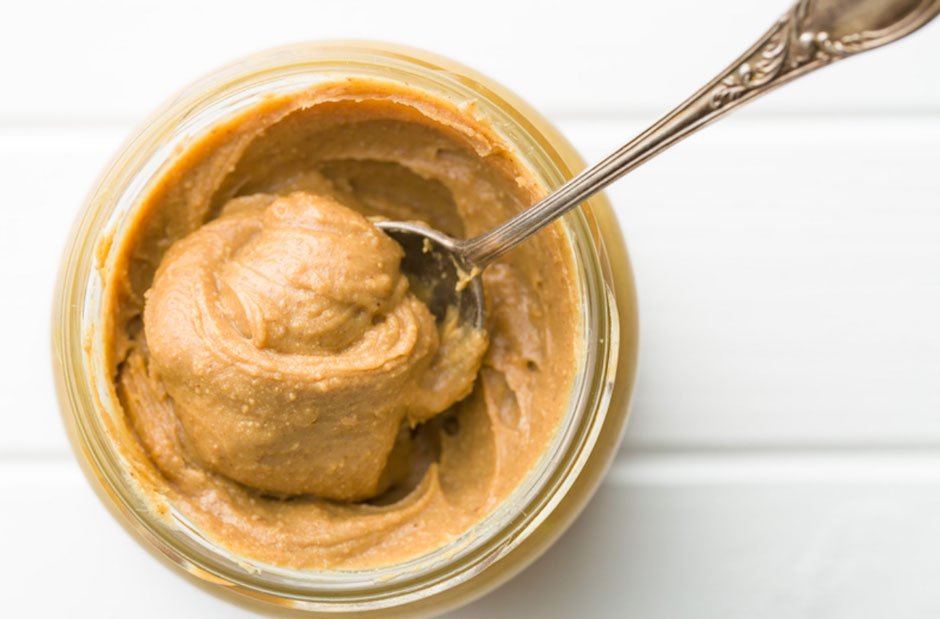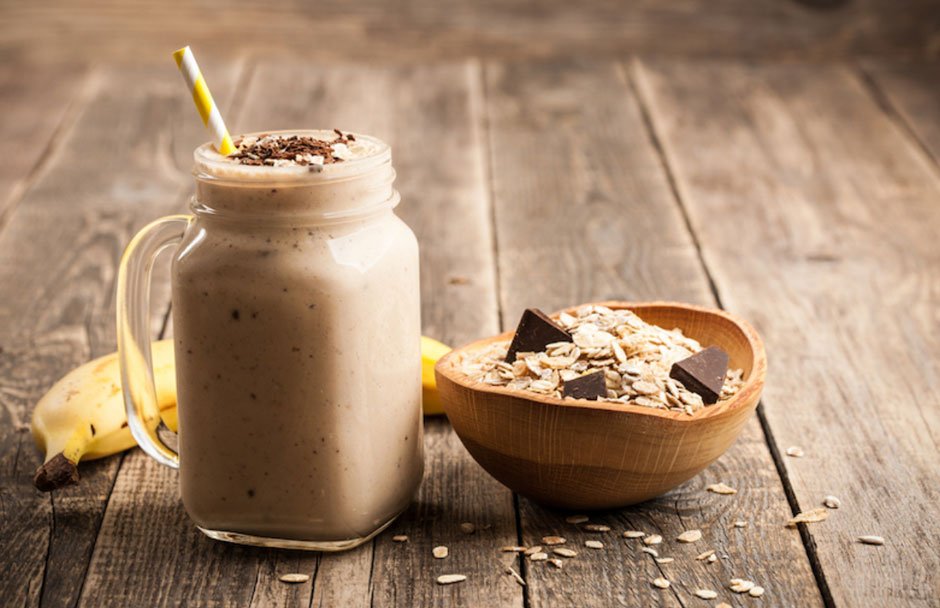How Much Protein is There in Peanut Butter?

Peanut butter is one of the most popular and versatile spreads in the United States. Although nostalgic of the PB&Js of our early childhood, peanut butter is not just for kids.
In fact, Dr. John Harvey Kellogg created the beloved spread in the late 1800s as a protein substitute for those who needed a softer diet [1].
But how much protein is actually in peanut butter? Let’s find out
Does Peanut Butter Contain Protein?
Peanut butter is a great source of protein, especially for those who follow a vegetarian or vegan diet. A standard 2-tablespoon serving of natural peanut butter contains roughly 190 calories and 7 grams of protein [2].
However, peanut butter is low in the essential amino acid methionine compared to other protein sources, such as animal proteins. Luckily, methionine can be found in other food sources such as grains and seeds like quinoa, sunflower seeds, and hemp seeds.
It is recommended that the average healthy adult consume 10-35% of their total calories from protein. For example, if you consume 2,000 calories per day, this means that you should be getting somewhere between 50-175 grams of protein [3].
Peanut butter can be an easy way to boost your protein intake by adding it to your snack, such as peanut butter with a banana or peanut butter on whole grain toast, as well as mixing it into sauces, salad dressings, and even smoothies.
Is Peanut Butter Good for Weight Management?

In addition to being a good source of protein, peanut butter is also rich in healthy fats and low in carbs. A 2-tablespoon serving of natural peanut butter contains roughly 16 grams of fat and 8 grams of carbohydrates [2].
Despite the high calorie content of peanut butter, it can be a great addition for weight management. Protein and fat are more satiating than carbohydrates therefore, consuming a small portion of peanut butter can help to keep you feeling full for longer and avoid overeating [4].
What is Powdered Peanut Butter?
Peanut butter (PB) powder is an alternative to peanut butter that removes the oils from the peanuts to reduce the calorie and fat content while enhancing the protein. This results in a highly flavorful powder that can be used in a similar fashion to traditional peanut butter but with a fraction of the calories.
PB powder is made by roasting peanuts and then pressing out the natural oils. The remnants are then ground into a fine powder that can be mixed into a variety of foods. You can also add a little bit of water to PB powder to create a similar consistency to natural peanut butter.
Does PB Powder Contain Protein?

PB powder contains the same amount of protein as traditional peanut butter however, it is a lot lower in calories and fat. Because of this, it can be easier to add to food items in larger amounts without concerns of overeating calories.
A 2-tablespoon scoop of PB powder, such as Naked Nutrition’s flavored peanut butter protein, a powdered peanut butter that contains 50 calories, 7 grams of protein, 2 grams of fiber, and only 3 grams of carbohydrates. Because it is low in calories and fat, you can easily double the serving for a higher protein content if needed.
Should I Use PB Powder or Regular Peanut Butter?
Whether you choose to use PB powder or regular peanut butter depends on your goals. However, you do not have to limit yourself to one or the other.
Traditional peanut butter provides many health benefits and can be included in a healthy diet even if you are looking to lose weight. If you are someone who enjoys peanut butter flavor and likes to have peanut butter often, choosing PB powder may be a great option for you.
PB powder may also be more versatile depending on what you plan to use it for. For example, peanut butter powder can be lightly sprinkled onto snacks to provide peanut butter flavor or mixed into foods such as yogurt whereas traditional peanut butter might not work as well for this.
Bottom Line
Both peanut butter and PB powder are great sources of protein, with about 7 grams per 2-tablespoon serving. Either can be incorporated into a healthy diet however, PB powder can be more beneficial for those watching their calorie intake and may be more versatile for those who want to enjoy peanut butter flavor more often.



